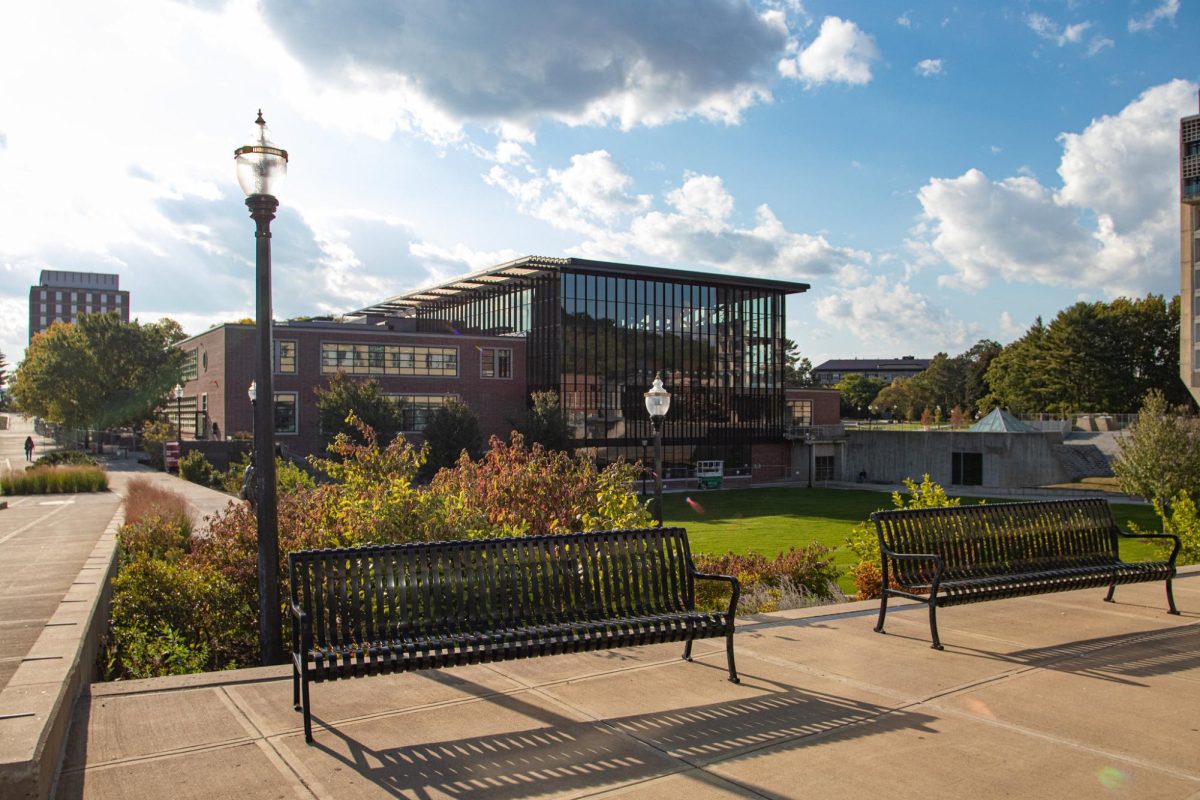Elizabeth McHenry, professor of African-American studies at New York University delivered the Mount Holyoke College Elizabeth T. Kennan Lecture yesterday in Mary Woolley Hall.
The lecture was given in honor of Mary McHenry, a Mount Holyoke Emeritus Professor of English and the speaker’s mother. McHenry was a Mount Holyoke alumnus who returned to the College in the 1970s to pioneer its African-American Studies Department.
The lecture was named in honor of former MHC President Kennan. McHenry’s lecture, “The Lost History of African-American Literary,” dealt with the formation of black literary societies in the nineteenth and twentieth centuries.
McHenry began the lecture by explaining that her interest in these societies began when she came across a reference to a “black women’s reading club” in Charlottesville, VA, in the early 1900s.
“Nothing in my training explained to me how black women at the turn of the century would have had time to sit around reading,” she said. “I tried to figure out what these women were doing.”
McHenry began researching the issue, and found an article in a 1925 edition of Publisher’s Weekly, which described an itinerant black bookseller by the name of Katherine Johnson. Johnson was unique to booksellers of the era because she sold exclusively to African-Americans.
“She wanted to sell books to people who would be inspired by them,” said McHenry. “She chose books that she said would ‘help the Negro to understand his place in America’.” McHenry explained that Johnson often sold enormous quantities of her books to enthusiastic black audiences, a fact which perplexed the article’s author.
“Why,” McHenry wondered, “was it so amazing to [the author of this piece] that blacks read?”
The answer, she said, is that the black literary tradition was, and still is often is, ignored.
“Historically, much has been recognized about black oral tradition,” she said, “but that has undermined the long history of African-American’s literary interaction.”
Much of the lecture was dedicated to describing the beginnings of black literary circles among free blacks in northern cities like Philadelphia, New York, and Boston, and the intentions of the societies’ creators.
McHenry explained that the societies were often segregated by gender. Men’s societies were held formally, in public locations, with elaborate rules of order and constitutions. Women’s societies, on the other hand, were much more casual, and often researchers’ only clues that they existed are announcements for their meetings found in newspapers and magazines.
The societies, both male and female, were formed mostly for the reading of black-authored literature. The study of these works often had a profound effect on the participants.
McHenry quoted one woman, a frequent society attendee, who wrote about how her readings affected her views on civil rights.
“One short year ago, how different were my feelings on slavery!” she said. “I had formed a little world of my own, but how the scene changed when I saw the oppressor lurking at the door of my peaceful home! I saw an iron hand stretch forth to see me as his prey! The cause of slavery became my own. I will elevate the character of my wronged and neglected race.”
A male participant wrote that, after reading the works of black authors like Frederick Douglass, he realized that “these limbs were never meant to be chained in servitude.”
Members of literary societies often became leaders in the abolitionist cause. McHenry feels that, had the societies been better publicized, public opinion may have been swayed in favor of black rights. She pointed out that one of the leading arguments of those who saw blacks as inferior was that African-Americans were often illiterate.
One writer in a Philadelphia abolitionist newspaper attended a black literary society, and was quoted as saying, “Their discussions expressed an elevation and elegance of language for which I was little prepared.”
One of the great ironies of these literary circles, though, was that they often inadvertently reiterated the rhetoric of slave-owners. The Pheonix, one of the most important black literary societies, stated in its constitution that the “role of well-read scholars” is more important that any other in the history of man.
McHenry pointed out that supporters of slavery often made identical comments, and maintained that this was a reason that “illiterate” blacks could not be expected to participate meaningfully in society.
At the conclusion of her lecture, McHenry took questions from the assembled audience. The first question dealt with the impact of modern book clubs, such as Oprah Winfrey’s.
“Everyone asks me that question!” McHenry said. “But it’s a good question, and an important one.”
She explained that she devoted the end of her book on the topic of black reading circles by addressing Oprah’s Book Club.
“Oprah’s most successful venture as a talk show host is the creation of her book club,” McHenry said. “She’s reintroduced reading as a popular form of entertainment.”
She called it the most successful book club in America’s history, and noted the importance of the prevalence of books by black authors among Oprah’s selections.
In the question-and-answer period, McHenry also addressed the issue of religion in the societies, and in black literature.
“When I started the study,” she said, “my understanding of black readers in those days was that they didn’t read – but if they did, they read the Bible.”
McHenry stressed that, while much of the commonly read material in literary societies was religious, the societies themselves, and their missions, were mostly secular.
“Most of the groups I’ve written about weren’t connected to a church,” she said.
Lynda Morgan, a Mount Holyoke Professor of History, was in attendance at the lecture. Morgan praised McHenry’s speech, and stressed the importance of understanding black literary circles and the role that they played in society.
“When I teach the history of slavery,” Morgan said, “I always stress the desire to acquire literacy as a sort of grassroots civil rights movement. I think these literary societies demonstrate that.”






